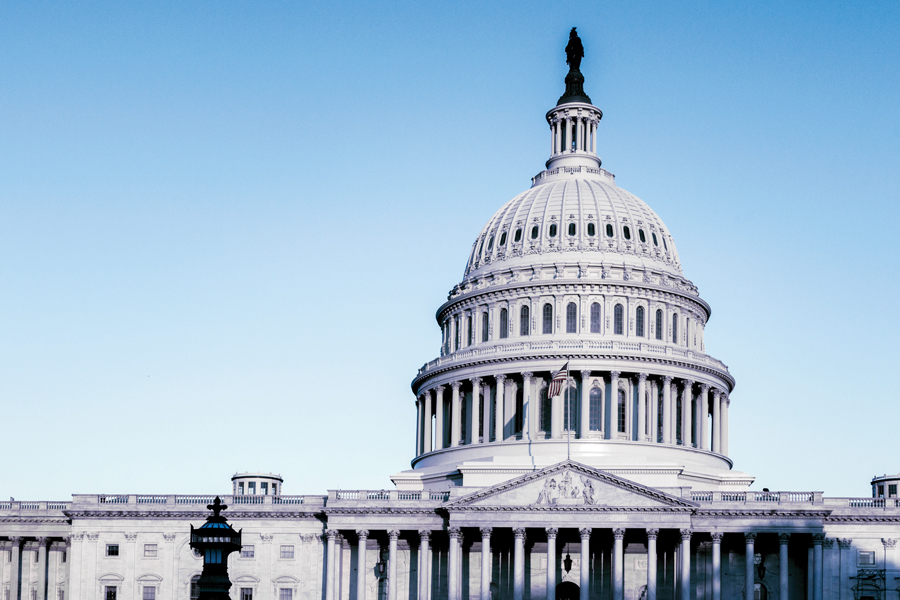

Small broker-dealers haven’t given up their effort to get legislation through Congress that would ease their annual audit requirements, despite a challenging political environment punctuated by impeachment and the election.
The Small Business Audit Correction Act would exempt small, privately held broker-dealers that do not hold client funds from having to hire an audit firm registered with the Public Company Accounting Oversight Board. Firms in good standing with securities regulators could resume having their annual audits conducted by firms that follow generally accepted auditing standards.
Many small brokers assert that PCAOB audits substantially increase their compliance costs and have made changing the requirement, instituted by the Sarbanes-Oxley law, a priority.
Paige Pierce, senior vice president of Larimer Capital Corp., is leading the charge for the change both at the regulatory level and through legislation. Last week at a hearing of the House Financial Service Committee, PCAOB Chairman William D. Duhnke III said he is reviewing the broker-dealer auditing program.
Meanwhile, the audit bill was introduced in the Senate last year. But a House companion is still in the works and meeting resistance from House Financial Services Committee Chairwoman Maxine Waters, D-Calif. In a previous Congress, Ms. Waters expressed reservations about investor protection implications of easing audit rules for small brokers.
“We’re still trying to garner Democratic support, specifically from Chairwoman Waters,” Ms. Pierce said. “If we could get majority [Democratic] support in the House, we believe our bills would stand a really good chance of passing this Congress. Our [bill] sponsors and small broker-dealers are not giving up. People have taken notice of that.”
A spokeswoman for Ms. Waters was not immediately available for comment.
The broker audit bill and other legislation that would affect retail investment advisers and brokers faces difficult political terrain this year. Legislative days on Capitol Hill are dwindling. The Senate is conducting an impeachment trial. As the election draws closer, legislating is likely to ground to a halt.
Retirement security after SECURE?
Late last year, Congress approved the SECURE Act as part of a federal spending measure. The bill, which was enacted by President Donald J. Trump, makes a number of changes to retirement savings policy, including helping small businesses offer 401(k) programs and facilitating the use of annuities in retirement plans.
After that substantial victory, retirement-security advocates are expecting a quieter year ahead, although a bill introduced by Sens. Rob Portman, R-Ohio, and Ben Cardin, D-Maryland, contains several more retirement policy changes.
“It’s going to be an uphill climb after SECURE just passed in the first year of this session of Congress to pass another bill that would address retirement-security issues,” said Paul Richman, chief government and public affairs officer at the Insured Retirement Institute.
Accredited investor reform
A bill that would expand the number of people who qualify as accredited investors eligible to buy unregistered securities was re-introduced last year in the House. A Senate companion has not yet been floated. Meanwhile, the Securities and Exchange Commission has released a proposal that would make many of the changes outlined in the House bill.
The prospects for legislation are slim, said Anya Coverman, senior vice president and general counsel at the Institute for Portfolio Alternatives.
“It’s just a more challenging environment, given that there’s an SEC proposal and it’s an election year,” Ms. Coverman said.
Bill to ease small-adviser regulation
Last year, legislation that could ease SEC regulations on small investment advisers was re-introduced in the House Financial Services Committee. The panel has not voted on it.
Advocates hope the legislation is included in an omnibus financial services bill later this year, said Neil Simon, vice president for government relations at the Investment Adviser Association. It’s not clear what the prospects would be for such a measure.
A congressional session runs for two years. Any bill introduced after Jan. 1, 2019, must be approved by Congress before Jan. 31, 2020, and signed into law or it will die and have to be re-introduced in the next Congress.

Wealth managers highlight strategies for clients trying to retire before 65 without running out of money.

Shares of the online brokerage jumped as it reported a surge in trading, counting crypto transactions, though analysts remained largely unmoved.

President meets with ‘highly overrated globalist’ at the White House.

A new proposal could end the ban on promoting client reviews in states like California and Connecticut, giving state-registered advisors a level playing field with their SEC-registered peers.

Morningstar research data show improved retirement trajectories for self-directors and allocators placed in managed accounts.
Orion's Tom Wilson on delivering coordinated, high-touch service in a world where returns alone no longer set you apart.
Barely a decade old, registered index-linked annuities have quickly surged in popularity, thanks to their unique blend of protection and growth potential—an appealing option for investors looking to chart a steadier course through today's choppy market waters, says Myles Lambert, Brighthouse Financial.
